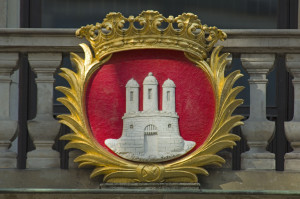The General Assembly of the German Olympic Sports Confederation (DOSB) has voted in favor of Hamburg as the official German nominee for the 2024 Olympic and Paralympic Games. The northern German city of Hamburg prevailed over Berlin and aims to present games with short distances, on the water and in the heart of Europe’s second largest port.
“It would be excellent for Germany to host the Olympic Games for the first time since 1972,” said Hamburg’s First Mayor Olaf Scholz. “Sport brings people together and creates enthusiasm. And yet not only the German sports sector, but also Germany as a whole would greatly benefit from hosting the Olympic and Paralympic Games. It would be a great honor for us to welcome the world to Hamburg.
”
Hamburg’s concept is particularly sustainable, compact and close to the public. An industrial site in the port would be converted into a new quarter – the “Olympic City”, which would also host the Olympic Park and the Olympic Village.
The quarter is situated only one kilometer from the city center, in the immediate vicinity of the flourishing HafenCity Hamburg district.
After the Olympic Games, the quarter would be converted into an inner-city residential area with 3,000 apartments, the Olympic Hall would be transformed into a cruise terminal, and the Olympic Stadium would be largely retained for subsequent use.
Moreover, the Hamburg Olympics would be climate-neutral, as energy demand and transport policies would focus on CO2 neutrality.
The majority of competition venues would be within easy reach within a radius of 10 kilometers, making the bicycle the major means of transportation during the Olympics. For Hamburg, the Olympic Games would be a prime urban development project and a stimulus, helping to connect and develop urban areas in the city’s south.
In 2024, Hamburg aims to host games that are close to the public. Prior to this weekend’s DOSB decision, Hamburg’s locals showcased their support and enthusiasm for the Olympic Games. Based on the motto “Feuer und Flamme”, more than 100 local events were held across the city: the Alster Lake in the city center was lined with 20,000 lit torches to create an “Olympic Alster Flame”, a miniature Olympic Stadium was frequented by 75,000 miniature residents on a scale of 1:100, and Hamburg residents discussed pros and cons at numerous public forums. To support the decision, the DOSB conducted a representative survey in the applicant cities. In Hamburg, 64 percent of surveyed participants voted in favor of the games. The final decision will be taken by the citizens of Hamburg in autumn with a referendum on the official nomination.
Hamburg Tourism Office, www.hamburg-travel.com.

